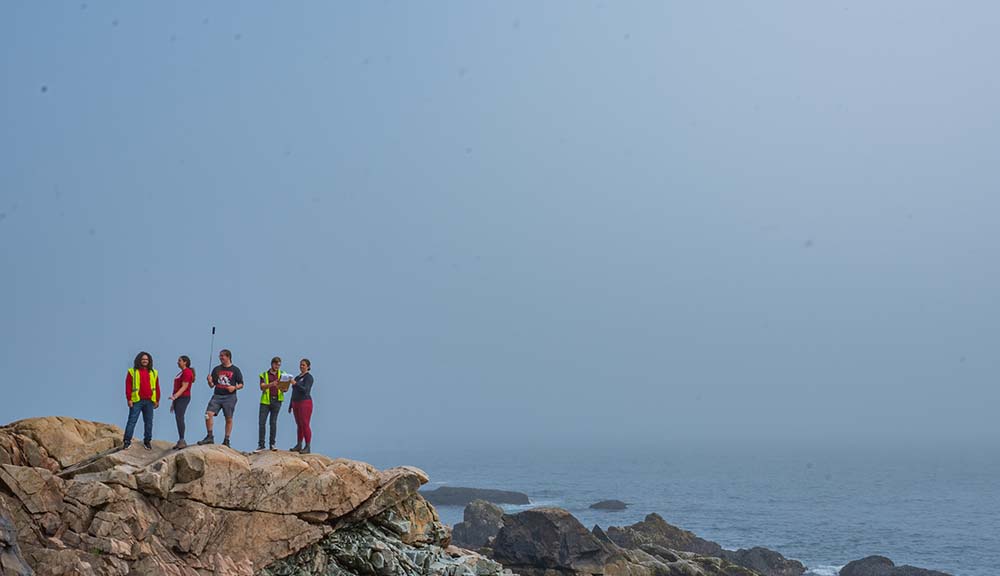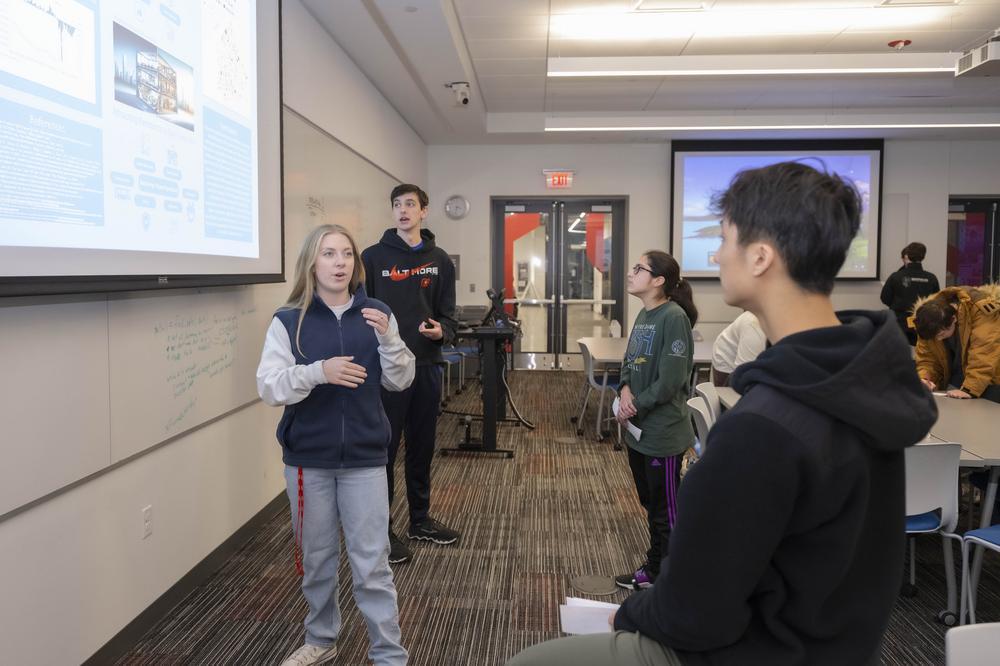Eric Hahn ’80 recently spent a morning with some first-year students talking about air pollution in China, fish stock depletion in Tanzania, and the feasibility of various photovoltaics systems. Hahn—a computer scientist and entrepreneur—returned to his alma mater to meet the 88 first-year students who had completed the university’s new “Great Problems” seminars.
WORCESTER, Mass. -- Eric Hahn ’80 recently spent a morning with some first-year students talking about air pollution in China, fish stock depletion in Tanzania, and the feasibility of various photovoltaics systems.
Indeed, it was just another day at WPI.
Hahn—a computer scientist and entrepreneur whose work has helped shape the Internet—returned to his alma mater to visit with the 88 first-year students who had completed the university’s new “Great Problems” seminars, a pilot program he helped start to give freshmen real-world experience through hands-on project work. In two seminars—Feed the World and Power the World—students addressed global problems focused on food, health, and energy resources.
In speaking with the students about their projects, Hahn was immediately impressed by their fresh ideas and thinking. Though not all of their proposed solutions were immediately implementable, he observed, “it was exciting to see their different perspectives.”
As well, he was pleased to see how some groups proved the negative. “The students had such zeal for their hypotheses, only to find they didn’t work,” he said. “To see them embrace the failure showed a maturity of thought.”
“The first year seminars provide marvelous illustration of our motto, theory and practice,” added President Dennis D. Berkey. “These exciting new courses appeal to the type of students who are attracted to WPI—innovative, broad-thinking, and energetic young people who want to grapple with big, important problems. The seminars are also very consistent with the WPI tradition, welcoming students into interesting and applied work while they are developing a very strong foundation of liberal and scientific knowledge.”
Hahn’s recent gift of $100,000 to the university helped fund this new approach to WPI’s first-year experience. His purpose was twofold: to help transform the first-year experience to include project-focused work, and to encourage students to be responsible members of the global community and use their unique talents to give something back.
After all, he said, the world’s problems really are engineering problems. Or, rather, he clarified, they’re problems that can be ameliorated with engineering solutions.
“Maybe we can put on our engineering hats and feed a few more hungry people,” he said, “or produce and deliver power without further damaging our environment. It’s the humane thing to do.”


